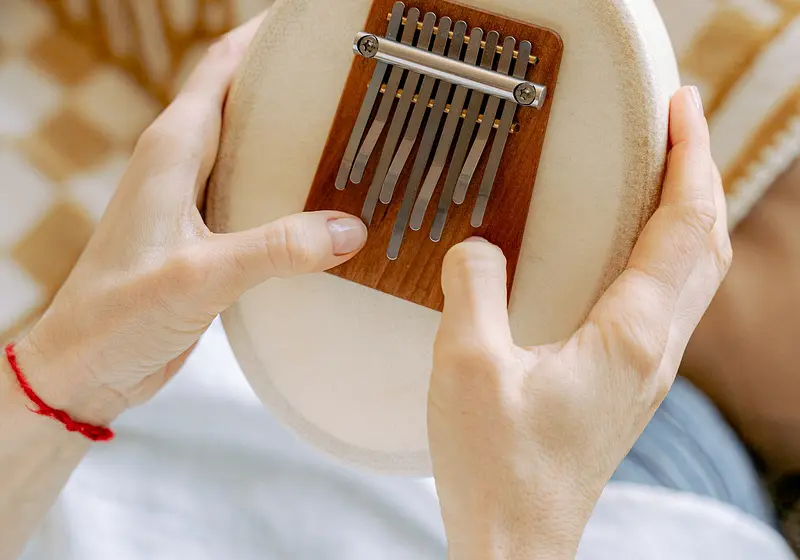This is for all the euphonium players out there without a voice to share the wonderful characteristics of the best instrument in the brass family. By the time I'm finished, everyone in the world will be aware of the tuba-like instrument, otherwise known as the euphonium. The next clueless face I find will have a well-deserved slap to the face.
When people ask me what instrument I play in my school band, I say euphonium. The usual response to this reply would be: "What's that?"
Every time I sum it up in a simple phrase: "It's like a mini tuba", the person usually knows what I'm talking about and nods approvingly. Who doesn't know what a tuba is?
The euphonium might not be the most popular instrument. I'm surprised when anyone knows what it is. You might just assume it's some sort of tuba but you're far from right.
Why should you read this article? Because if you ever ask "what instrument do you play?" in any scenario to anyone, and they just so happen to answer "euphonium", you can impress them by claiming you know what that is.
What is the Euphonium?
The Euphonium is a brass instrument. People resemble it to a tuba because it does look like a tuba at first glance. But if you compare the beautiful sound it makes to the deep echo of the tuba, you will see a difference.
Here is a video of someone playing a euphonium:
Here is a video of someone playing the tuba:
The sound it creates resembles more to a trombone. It has a deep echo, but not as impactful as a tuba. Some euphoniums actually have an extra valve that when you push down on, makes a tuba sound.
Here is a video of someone playing the trombone:
The name "euphonium" comes from Ancient Greek, meaning "well-sounding". The description suits it perfectly. The only thing that makes it difficult to play is that finding music with a euphonium part or an instructional book based on it is not the most simplest task.
When was it invented?
The euphonium was invented halfway throughout the 19th century by Ferdinand Sommer of Weimar. We are not 100% certain that he was the first person to invent it, but he did invent an instrument named the "euphonion". From there, as humans evolved, the instrument changed and shifted and eventually throughout time created the euphonium.
Sommer with the first instrument that slightly resembles in tone the instrument that is today called the euphonium.
How is it Played?
"Is this question even necessary?" Is probably the question running through your mind at the moment. And the answer is yes, it is very necessary.
At this point people who have never played this instrument just suspect you blow in it through the mouthpiece and push down on the valves and voila! You're playing it with ease! No.
It's not that simple. If it were, everyone would be playing it in their free time. Playing the euphonium requires lip technique.
When you play a high note you need to press your lips together depending on the severity of it. If it is high above the actual scale, you have to make it as if your lips aren't even there and buzz into your instrument.
With the low notes, they're not as difficult or tiring depending on your talent with it. You have to make your lips as loose as possible (depending) and blow into your instrument. I prefer the notes in between because then all you need to do is blow into it with the right technique without making your lips tired or sore.
What Accessories do you Need to Play?
Well, there's your mouthpiece. You don't need a mouthpiece that specifically says euphonium though. Trombones and euphoniums more often than not use the same mouthpiece so if you ever plan to buy one, just ask for a trombone one.
You're going to need oil as well if your valves ever get stuck or just for oiling the 3-4 tubes found across your instrument.
Do you want to find fingerprints all over your new euphonium? That's why when I use mine, I usually use gloves, it still looks like it just got shipped from Amazon a couple days ago.
The Types of Euphoniums
There are many types of euphoniums, each one having a different tone. I'm only going to mention the ones with separate physical appearances. There's even an instrument like the euphonium called the baritone, it's also called the baritone horn.
They look the same and apparently have approximately the same sound. I would consider it a type of euphonium.
This instrument could also be considered a type of euphonium called a "marching" euphonium. Its purpose is exactly as it sounds. It usually is found in marching bands.
Sometimes leading or accompanying the tubas. It makes sense, its similarity to the tuba can make it a part of a marching band.
Compensating Euphonium: When professionals play the euphonium, they aren't going to play a regular euphonium that most students play, they want to have more variety with their notes and sounds. Because with this comes more options for songs they can play. The type of euphonium they purchase would be this one.
Remember when I mentioned that euphoniums can sometimes have a fourth valve to have a deep echo similar to the tubas? This type of euphonium would be one of them.
Trombone players don't walk on the streets every day, sometimes in rare occasions, an orchestra can only settle with a euphonium player. On these occasions, they could sometimes be asked to play the "Double-bell" euphonium. It's a euphonium as described, with two bells. One of them opposite from the other.
This is the first time I've heard of it so if you want to know how to play a euphonium with two bells, I wouldn't know.
While searching through the Wikipedia page, I found that there was also a euphonium with five valves. It's rarely used and quite unpopular so I'm not going to get into much detail. But from proper examination, the double-bell euphonium would be the perfect example minus the extra bell.
Why Should You Play The Euphonium?
1. It's Simple Enough
The Euphonium isn't a complicated instrument. Its fairly easy. Push on some valves and blow into the mouthpiece with the right technique and you've got music.
The only intricate thing about it, well, with every musical instrument, is matching the noise it makes to the notes on the scale. The high notes are more difficult but all high notes are difficult with low-brass players.
2. Health Benefits
Playing music does have several health benefits. This is not specific to the Euphonium, every instrument has health benefits. Any type of music you play will always have health benefits. I'm not going to get into them though, that's a whole other article.
3. At a Concert, Everyone can Hear You
I can aprove this fact because I have played at school concerts before. Since the low-brass instruments are the base of the band, the vibrations from the tuba and euphoniums can be heard from everyone. You're not just another of the 1000 clarinets or trumpets in the band, it's unique.
Credits
Thanks Wikipedia for the additional information and history about the euphonium. I'm glad I was able to learn so much about the instrument I play!
If you plan on pursuing with learning the euphonium, its not an easy task; there are very few websites that offer free euphonium/trombone music sheets and/or beginner note instruction, so I would just suggest buying a music book on Amazon with all the music you want.







.jpg)
.jpg)






